Alternatives to Estrogen

About 95 percent of all women reach menopause by age 55, and many suffer from hot flashes and other symptoms during this hormonal change. The usual medical treatment is hormone replacement therapy, which is associated with many potential side effects such as high blood pressure, abnormal vaginal bleeding, gallbladder disease, depression, weight gain, and endometrial and breast cancers. In a study of 121,700 nurses, those taking estrogen alone or estrogen and progestin together, had an increased risk of breast cancer compared to women who never used hormones.
Another way of relieving symptoms associated with menopause is the herb black cohosh, which has a long history of treating women’s problems in both America and Europe, and was an official drug of the U.S. Pharmacopoeia from 1820 to 1926. Studies show that the plant strengthens female reproductive organs, and has hypoglycemic, estrogenic, mild sedative, and anti-inflammatory effects. Extracts of the root have been found to reduce menopausal symptoms such as hot flashes and depression. One randomized, double-blind study compared a black cohosh preparation with estrogen and with a placebo. On measures of menopausal symptoms, the herb outperformed both the estrogen and the placebo.
Many studies document black cohosh’s effectiveness and its safety.The herb has been used in Germany for more than 40 years with no evidence of serious side effects, contraindications, or harmful interactions with other drugs; however, use during pregnancy or lactation is not recommended. Mild nausea while taking the herb has been reported in rare cases.
Natural progesterone, usually synthesized from Mexican wild yams or soybean plants, is another alternative to conventional hormone replacement therapy. In addition to its action on menopausal symptoms, progesterone has also been found to promote bone growth, relieve PMS symptoms, and is sometimes recommended for fibrocystic breasts, endometrial hyperplasia, depression, and high blood pressure. Administering progesterone through the skin is more efficient than taking it orally, because the transdermal route avoids its destruction in the liver.
Progesterone cream can be purchased at your local health food store.
Gingko Relieves Sexual Dysfunction Brought on by Antidepressants
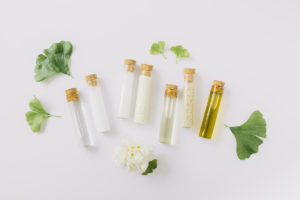 Patients taking prescription antidepressants often experience unwanted sexual side effects. In this open clinical trial, researchers treated 33 women and 30 men experiencing this problem with 80 to 120mg of ginkgo extract per day. All patients continued taking their usual antidepressant medication during the trial. (Most were using SSRI-type drugs such as fluoxetine or sertraline.) At the end of the four-week trial, results were assessed through clinical interviews and patient self-reports. Ginkgo treatment was reported to be effective for 91 percent of female patients and 76 percent of males. All of the patients for whom ginkgo was effective expressed interest in continuing the herbal treatment. The authors mention possible mechanisms of action to explain ginkgo’s observed effect and call for future double-blind studies on the topic. You can find Ginkgo at most health food stores.
Patients taking prescription antidepressants often experience unwanted sexual side effects. In this open clinical trial, researchers treated 33 women and 30 men experiencing this problem with 80 to 120mg of ginkgo extract per day. All patients continued taking their usual antidepressant medication during the trial. (Most were using SSRI-type drugs such as fluoxetine or sertraline.) At the end of the four-week trial, results were assessed through clinical interviews and patient self-reports. Ginkgo treatment was reported to be effective for 91 percent of female patients and 76 percent of males. All of the patients for whom ginkgo was effective expressed interest in continuing the herbal treatment. The authors mention possible mechanisms of action to explain ginkgo’s observed effect and call for future double-blind studies on the topic. You can find Ginkgo at most health food stores.
Kava Extract Relieves Anxiety: Meta-Analysis
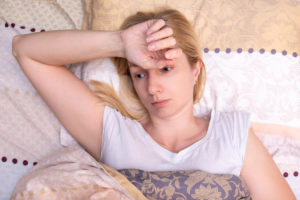 To perform a meta-analysis, researchers select the best of available clinical trials, then review and combine the results, allowing them to draw conclusions with more confidence than would be possible from isolated studies. For a meta-analysis of trials on kava (Piper methysticum), researchers at the University of Exeter, UK, selected three out of 14 double-blind, randomized, placebo-controlled clinical trials . Their results help confirm the validity of the individual kava studies: Compared with placebo, kava extract is an efficacious treatment for anxiety.
To perform a meta-analysis, researchers select the best of available clinical trials, then review and combine the results, allowing them to draw conclusions with more confidence than would be possible from isolated studies. For a meta-analysis of trials on kava (Piper methysticum), researchers at the University of Exeter, UK, selected three out of 14 double-blind, randomized, placebo-controlled clinical trials . Their results help confirm the validity of the individual kava studies: Compared with placebo, kava extract is an efficacious treatment for anxiety.
Patients in the three studies took 100mg three times daily of kava extract for up to 24 weeks, and analysis suggested a “significant reduction in the HAM-A total score of approximately 10 points in favor of kava extract.” In none of the studies did placebo rate higher than kava in reducing anxiety.
According to U.S statistics, around 17 percent of the population experience anxiety disorders in any one year, and the lifetime prevalence is almost 25 percent. Conventional treatment involves benzodiazepine drugs, which can have serious side effects, including dependence, daytime drowsiness, and memory impairment, among others. Kava, on the other hand, has demonstrated a remarkable safety profile, with side effects of only 1.5 to 2.3 percent reported in studies of more than 3,000 patients. The adverse events reported most often by kava users were gastrointestinal complaints, allergic skin reactions, headache, and photo-sensitivity.
Kava can be purchased at any health food store.
Three Studies Show Dietary Supplements Improve Health Of Seniors
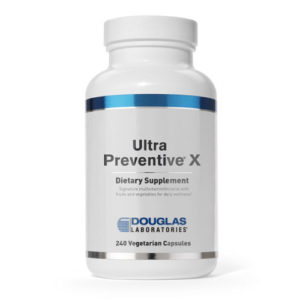 The recent clinical studies showed that dietary supplements can treat nutritional deficiencies in the elderly, boost their immune systems, combat shortterm memory loss, reduce risk of Alzheimer’s, and improve seniors’ overall health. The first, conducted at Memorial University of Newfoundland, concluded that supplementation with moderate amounts of 18 vitamins, minerals, and trace elements improved short-term memory and overall cognitive abilities and strengthened immune system function in 86 elderly people treated over the course of one year.
The recent clinical studies showed that dietary supplements can treat nutritional deficiencies in the elderly, boost their immune systems, combat shortterm memory loss, reduce risk of Alzheimer’s, and improve seniors’ overall health. The first, conducted at Memorial University of Newfoundland, concluded that supplementation with moderate amounts of 18 vitamins, minerals, and trace elements improved short-term memory and overall cognitive abilities and strengthened immune system function in 86 elderly people treated over the course of one year.
A separate study published in the May 2001 issue of Neurology found that seniors with low levels of folate and vitamin B12 have an increased risk of developing Alzheimer’s disease.
A third study, published in the August 2001 issue of Nutrition, showed that nutritional deficiencies greatly increase with age, and that supplement use helps eliminate these deficiencies in the elderly. I recommend kids from 4 to 92 take a good optimal daily allowance multivitamin. I recommend Ultra Preventive X.
Ginseng For Acute Attacks and Chronic Bronchitis
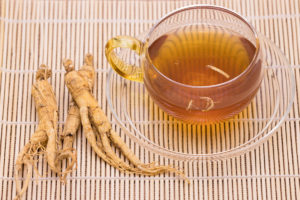
Adjunctive treatment with standardized ginseng extract G115® increased the speed of bacterial clearance in patients undergoing treatment with antibiotics for chronic bronchitis. The study participants were 75 Italians with acute at-tacks of chronic bronchitis who received treatment with 875mg amoxicillin and 125mg clavulanic acid twice daily for nine days, and were then randomized into two groups. One group (37 patients) received only the antibiotic treatment, and the other (38 patients) took the antibiotics in combination with ginseng extract at a dose of 100mg twice daily. In the 44 patients who were evaluable at the end of the study, the time to complete clearance of bacteria was significantly shorter in the group receiving the combination treatment (median 6 days/mean 5.9 days vs. median 7 days/mean 6.7 days). The researchers suggest, “Patients in whom the elimination of bacteria from the bronchial system is particularly difficult may benefit from the use of ginseng.”
Ginseng can found at any health food store.
Stress and Disease
Researchers at the University of Michigan found that short-term stress boosts the body’s ability to fight disease, and long-term stress weakens the immune system by up to 60 percent!
Reduce Your Stress … Give and Get Some Hugs
A brief hug with a loved one reduces the effects of stress on blood pressure and heart rate by half, according to a study at the University of North Carolina.
Pomegranate Juice Confers Cardiovascular Health Benefits
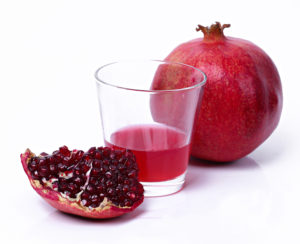
In vivo studies in healthy nonsmoking men and mice with experimentally induced atherosclerosis (hardening of the arteries) concluded that pomegranate juice (Punica granatum) had potent antiatherogenic effects, possibly due to its antioxidant activity. In the men, consumption of pomegranate juice decreased the susceptibility of low-density lipoprotein (LDL) cholesterol to aggregation and retention, and increased the activity of serum paraoxonase (a naturally occurring antioxidant) by 20 percent. In mice, pomegranate juice reduced oxidation of LDL by 90 percent. and shrank atherosclerotic lesions in the mice by 44 percent, compared with control mice.
Devil’s Claw Root as Effective as Drug in Relieving Osteoarthritis Pain
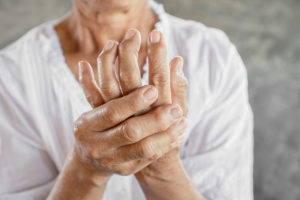 A new clinical study adds to the growing body of evidence supporting the use of devil’s claw root (Hapagophytum procumbens) in osteoarthritis. The double-blind, randomized trial concluded that devil’s claw root was as effective in relieving pain and safer than diacerhein (a type of drug known as a symptomatic slow-acting drug for osteoarthritis, or SYSADOA). The study participants (122 people with active osteoarthritis of the hip or knee) were randomly assigned to take either six 435mg capsules of devil’s claw powdered extract plus two placebo capsules, or two 50mg capsules of diacerhein plus six placebo capsules for four months. Results showed that the two treatments were equally effective in relieving spontaneous pain.
A new clinical study adds to the growing body of evidence supporting the use of devil’s claw root (Hapagophytum procumbens) in osteoarthritis. The double-blind, randomized trial concluded that devil’s claw root was as effective in relieving pain and safer than diacerhein (a type of drug known as a symptomatic slow-acting drug for osteoarthritis, or SYSADOA). The study participants (122 people with active osteoarthritis of the hip or knee) were randomly assigned to take either six 435mg capsules of devil’s claw powdered extract plus two placebo capsules, or two 50mg capsules of diacerhein plus six placebo capsules for four months. Results showed that the two treatments were equally effective in relieving spontaneous pain.
However, by the end of the study, significantly fewer people in the devil’s claw group needed to take additional analgesics for “rescue” pain relief. The frequency of side effects was also significantly lower among people in the devil’s claw group. The most commonly reported adverse effect was diarrhea, reported by 8.1 percent of the devil’s claw group and 26.7 percent of those who took diacerhein.